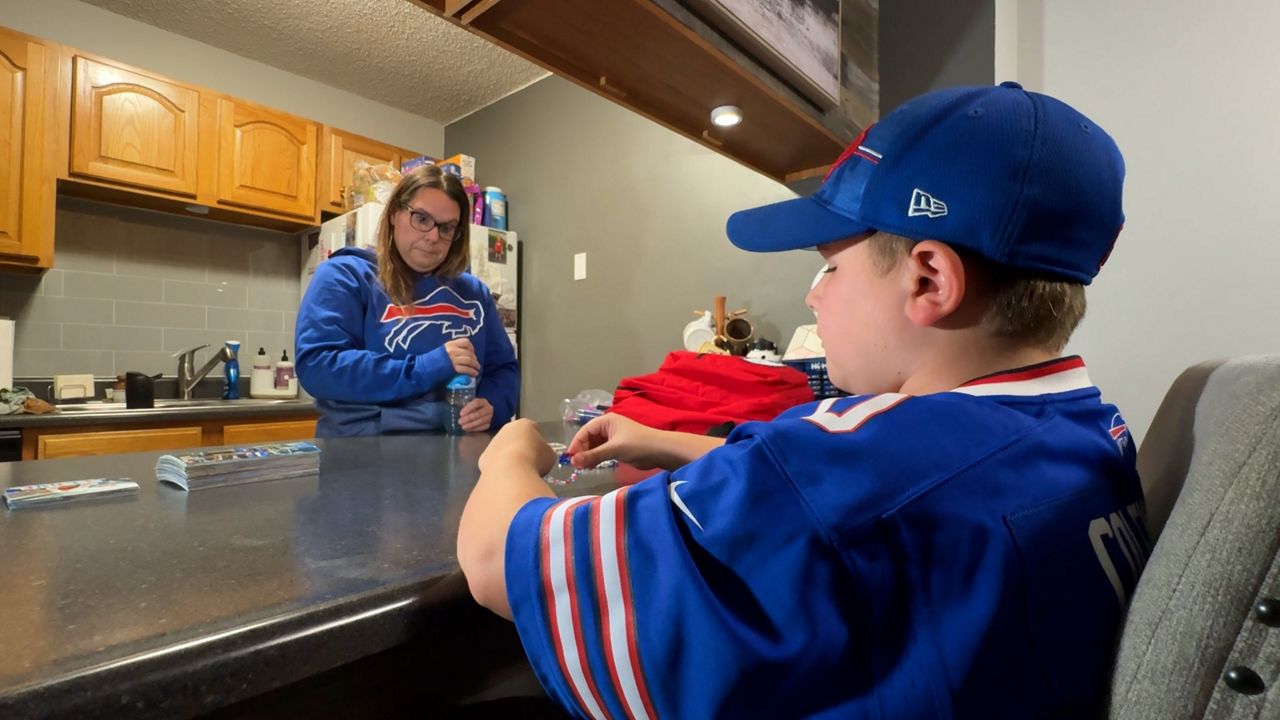BUFFALO, N.Y. — Earlier this year, the Centers for Medicare and Medicaid approved an amendment to New York state’s Medicaid 1115 waiver.
Public Health researchers say it basically means Medicaid will start paying for social needs, including food, transportation, housing and other things that could affect their medical outcomes.
The highlight for those in public health is that people covered by Medicaid will be able to get fruits and vegetables prescribed to you like you would medicine. These are also commonly called “Food is Medicine” programs.
University at Buffalo researchers received $400,000 in funding from the American Heart Association for a study exploring food prescription programs in older adults. Lucia Leone is a co-principal investigator on the study.
"It's so exciting that this is now an option because a lot of times when people go into their physician's office and the physician says, ‘eat more fruits and vegetables,’ and they're like, ‘where do I get those and how can I afford them?’" Leone said.
Why study food prescriptions? Jill Tirabassi, the other principal investigator of the study, says most of health occurs outside the medical and health care system.
"Primarily in behaviors that we choose to do every single day: what we eat, how we sleep [and] how we exercise,” Tirabassi said. “And so a study like this really focuses on the integration of how the health care system can actually help us make healthier food choices.”
Leone says there’s been a lot of work across the country on understanding and the use of mobile markets, a smaller scale grocery store that operates from vehicles like trucks, vans, or trailers. She says it’s currently a common way older adults are getting food prescriptions filled.
"We want to see if having options with delivery may improve usage of these programs,” Leone said. “And so that's really what we're trying to test with this study is comparing our traditional programs that we do at mobile markets with being able to get a food prescription delivered to your home.”
Participants of the study will be enrolled based on their food security status and will be split into three groups: a group that uses vouchers at mobile markets to redeem their fruit and vegetable prescription, a group that receives a customizable produce box delivered weekly like what they might get at FreshFix and a group that gets a complete meal kit.
"We really want to understand if the food's being used because you want to show that, you know, all these barriers that are currently not allowing people to use their full prescriptions or even use a prescription in general can be fixed and solved," Tirabassi said.
That’s where the reason for focusing on older adults come in. Tirabassi says they’re about to become the largest population in our country soon and they have specific health, mobility, transportation and technology challenges.
"So we think that if we use this population to really figure out some of these logistical issues, it'll actually help benefit everyone," Tirabassi said.
The study will begin in late summer 2024.
The Medicaid waiver is predicted to go into effect in the fall. Researchers say participants are not required to be on Medicaid to take part in the study.









